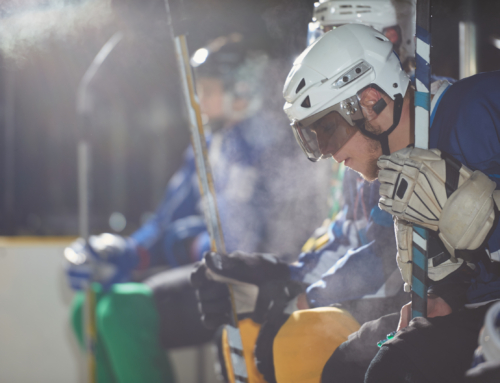Unlock Potential: Understanding Youth Sports: The Science of Supporting, Not Pressuring with Charlotte Hockey Lab
Introduction: The Parent’s Dilemma in Youth Sports
Parents often face a delicate balance in their child’s athletic journey, walking a fine line between encouraging participation and inadvertently creating undue pressure. This crucial dynamic forms the core of understanding Youth Sports: The Science of Supporting, Not Pressuring. It’s a common scenario where good intentions can sometimes lead to outcomes contrary to a child’s long-term enjoyment and development in sports.
Youth Sports: The Science of Supporting, Not Pressuring
The distinction between supporting and pressuring is fundamental to fostering a positive sports experience. Support emphasizes effort, learning, and personal growth, regardless of the game’s outcome. Pressure, on the other hand, often fixates on winning, performance metrics, and external validation, which can stifle a young athlete’s natural love for the sport. Research consistently shows that an environment of strong parental support, characterized by positive reinforcement and a focus on skill development, leads to greater enjoyment and lower anxiety levels in young athletes.
Nurturing Intrinsic Motivation: Fueling a Lifelong Love for the Game
Intrinsic motivation—the desire to engage in an activity for its inherent satisfaction—is the bedrock of sustained athletic involvement. When children feel genuinely passionate about their sport, they are more likely to persevere through challenges, develop resilience, and ultimately achieve their potential. Parents can nurture this by:
- Emphasizing effort over outcome: Celebrate hard work and improvement, not just wins.
- Allowing autonomy: Let children make choices about their participation and goals.
- Fostering a sense of belonging: Encourage positive team dynamics and friendships.
- Making it fun: Remember that sports should be enjoyable for kids.
Shifting the focus from external rewards to the internal satisfaction of play helps build a lasting connection to the sport.
The Psychological Impact of Parental Approaches
The way parents communicate and behave significantly impacts a child’s psychological well-being in sports. Over-involvement, excessive criticism, or living vicariously through a child’s achievements can lead to:
- Increased anxiety and stress
- Fear of failure
- Decreased self-esteem
- Burnout and early withdrawal from sports
Conversely, a supportive approach builds confidence, encourages healthy coping mechanisms, and promotes a positive self-image. It enables young athletes to embrace challenges and learn from setbacks without fear of disappointing their parents.
Practical Strategies for Empowering Young Athletes
Empowering young athletes means giving them the tools and environment to take ownership of their sporting journey. Here are some actionable strategies for parents:
- Active Listening: Pay attention to your child’s feelings about their sport. Ask open-ended questions and truly listen to their answers.
- Positive Reinforcement: Focus on specific behaviors and efforts. Instead of “Great game,” try “I loved how you kept working hard even when the score was tough.”
- Skill Development Focus: Encourage a growth mindset. Highlight how practice leads to improvement, as discussed in how to maximize individual training for hockey development pathways.
- Managing Expectations: Understand that not every child will become a professional athlete. Value the life lessons learned through sports.
- Promote Healthy Coping: Teach children how to handle wins and losses gracefully, and how to manage performance pressure.
Navigating the Journey: Ups, Downs, and Maintaining Perspective
Youth sports is a journey filled with highs and lows. There will be victories and defeats, moments of triumph and periods of frustration. Maintaining perspective is key for both parents and athletes. Remind your child that their worth is not defined by their athletic performance. Encourage them to see every experience, good or bad, as an opportunity for learning and growth. This balanced viewpoint is vital for sustaining a positive outlook in a competitive environment.
Charlotte Hockey Lab’s Holistic Approach to Youth Development
At Charlotte Hockey Lab, our philosophy aligns perfectly with the principles of Youth Sports: The Science of Supporting, Not Pressuring. We believe in cultivating well-rounded athletes who excel not only on the ice but also in life. Our programs focus on a holistic development model that includes:
- Skill-Based Training: Emphasizing foundational techniques and advanced strategies.
- Mental Toughness: Building resilience, focus, and confidence.
- Character Development: Promoting teamwork, leadership, and sportsmanship.
- Individualized Attention: Tailoring coaching to each player’s unique needs and goals.
We provide a supportive environment where young hockey players can develop their abilities, build confidence, and deepen their passion for the game, free from undue pressure.
Conclusion: Cultivating Potential, Building Resilience
Ultimately, the goal of youth sports should be to cultivate a child’s potential, both athletically and personally, while building resilience and a lifelong love for physical activity. By embracing the science of supporting rather than pressuring, parents and coaches can create an enriching experience that empowers young athletes to thrive in all aspects of their lives. The positive impact of such an approach extends far beyond the scoreboard, shaping confident, well-adjusted individuals ready to face future challenges.

We use only the finest ingredients to produce stellar tastes.










